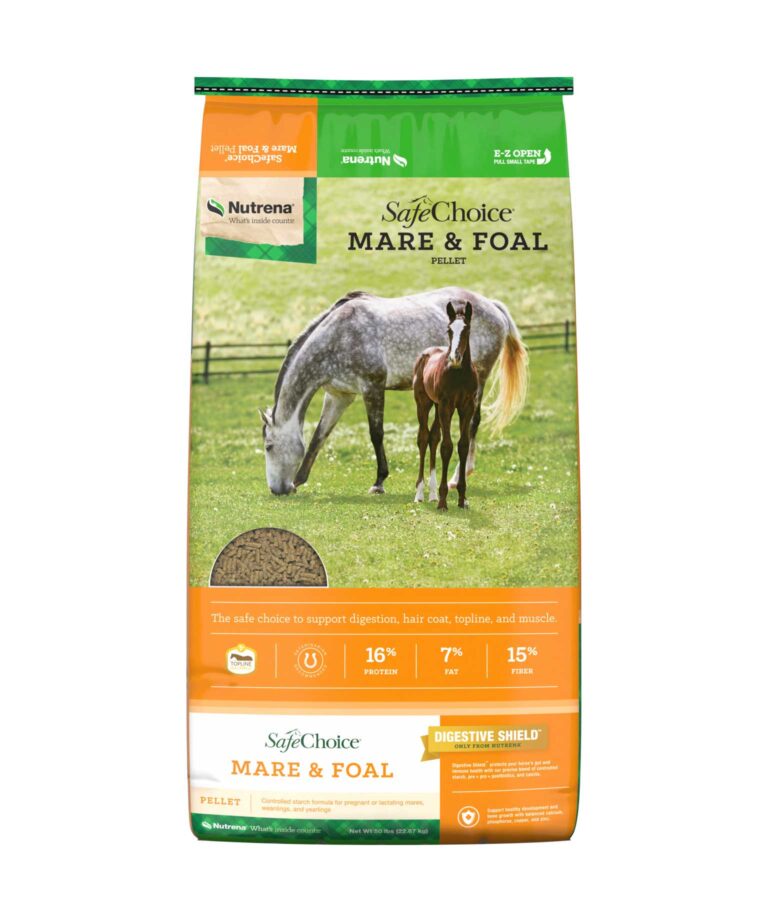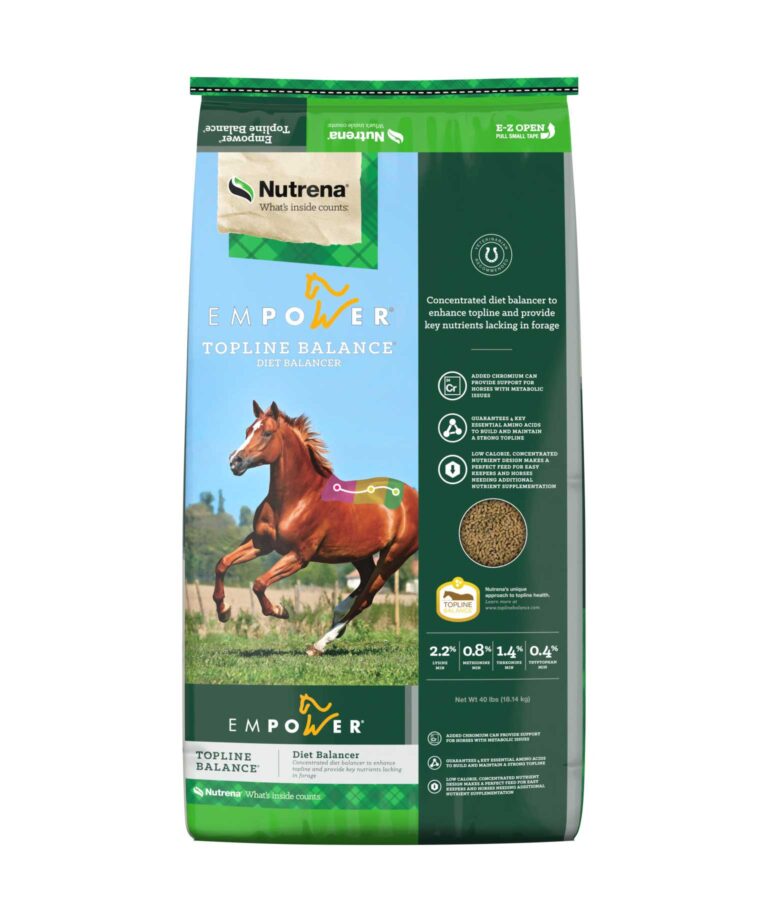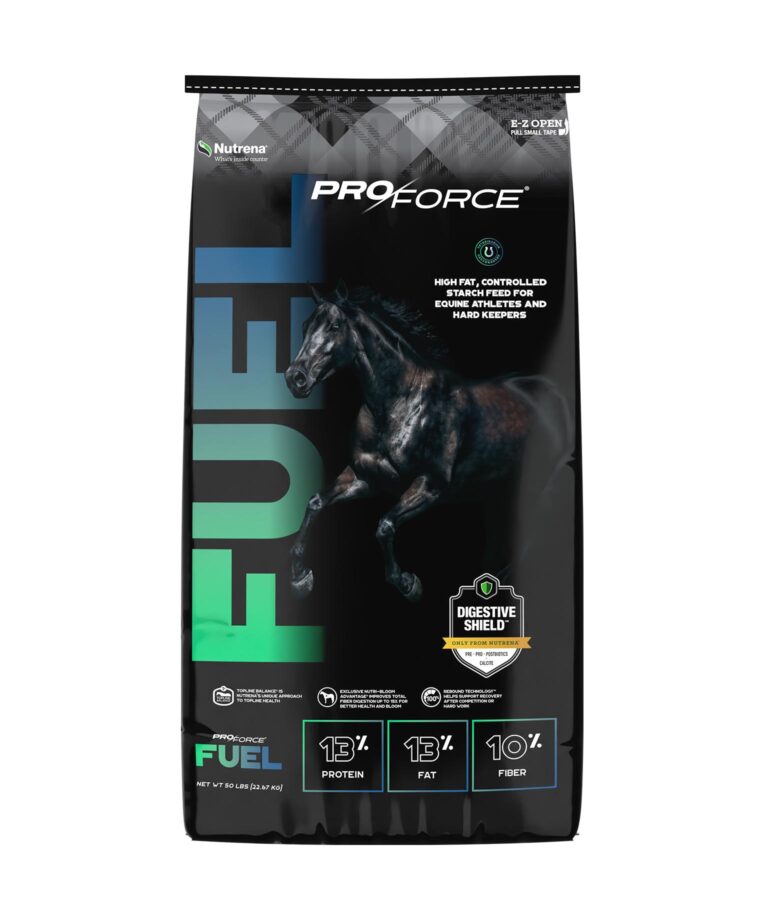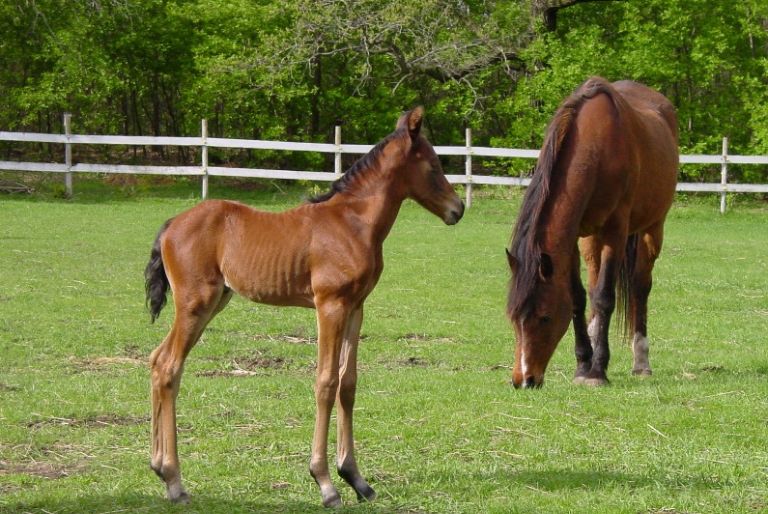Feeding Foals
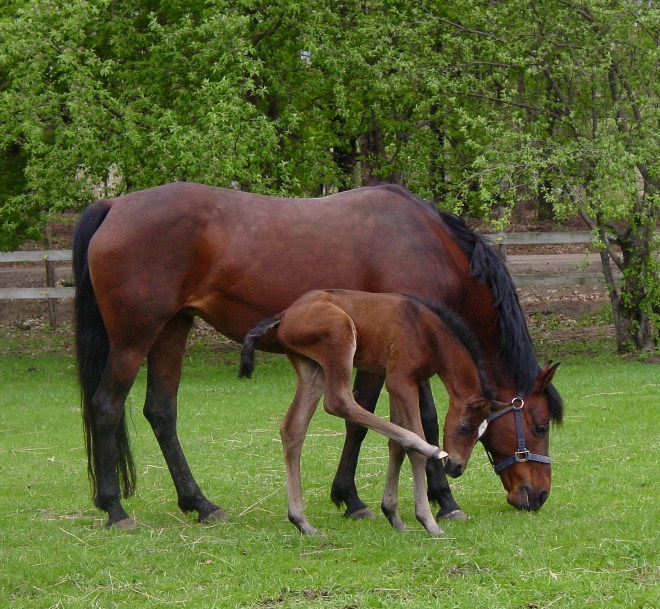
Ferris with mom Rosie – foals exhibit the most entertaining behaviors….
Similar to human babies, the nutrition and care a foal receives in the “baby” stage can have an effect on its whole life, including soundness and development issues that may not become obvious until years down the road. Starting your foal on the right path to nutritional health will pay off not only in the immediate future but in the long term as well.
Within a few hours of being born your foal will take in the mare’s first milk. This milk is known as colostrum and it provides valuable antibodies that help prevent diseases. In the first several weeks of life your foal focuses on nursing to get all of his nutrition. Your foal should consume 15-25% of his bodyweight daily in milk and will be gaining from 2-3 lbs. per day. If you notice your foal nursing longer than 30 minutes at a time, you may need to investigate and make sure that the mare is producing enough milk to the foal.
As early as one week of age your foal may start taking some interest in feed by nibbling at hay or grain. This initial interest may be just a way of imitating mom, but the foal soon learns to use these other sources of nutrition and his digestive tract quickly adjusts to solid food. One of the things your foal may eat might not look all that appetizing to you, but coprophagy (eating manure) is now recognized as being normal in foal behavior. It is thought to be a way that the foal’s hindgut gets prepared ferment forages later on.
Between weeks 13-24 your foal’s source of nutrition from his dam is starting to dwindle as the lactating mare produces less and less milk. At this point we want to make sure that the foal has a good and balanced supplemental source of nutrition; you may want to start a creep feeding program to make sure your foal has good access to this supplemental diet.
Foal feed needs to be focused on providing balance to the diet. Metabolic bone disease is something almost all foal owners fear. Foals who grow too rapidly, gain weight too quickly or who have an imbalance in essential parts of the diet (minerals, protein, calories, etc.) can end up with these serious health issues, which can include DOD (Developmental Orthopedic Disease), physitis, contracted tendons and others. Make sure that you are providing a good, digestible source of protein (tip: look for guaranteed levels of amino acids), correct amounts of vitamins and minerals (particularly important are calcium & phosphorus, copper & zinc and selenium & vitamin E) and the right amount of calories for sound growth.
Check out our Equine Growth Chart to chart your foal’s progress!

